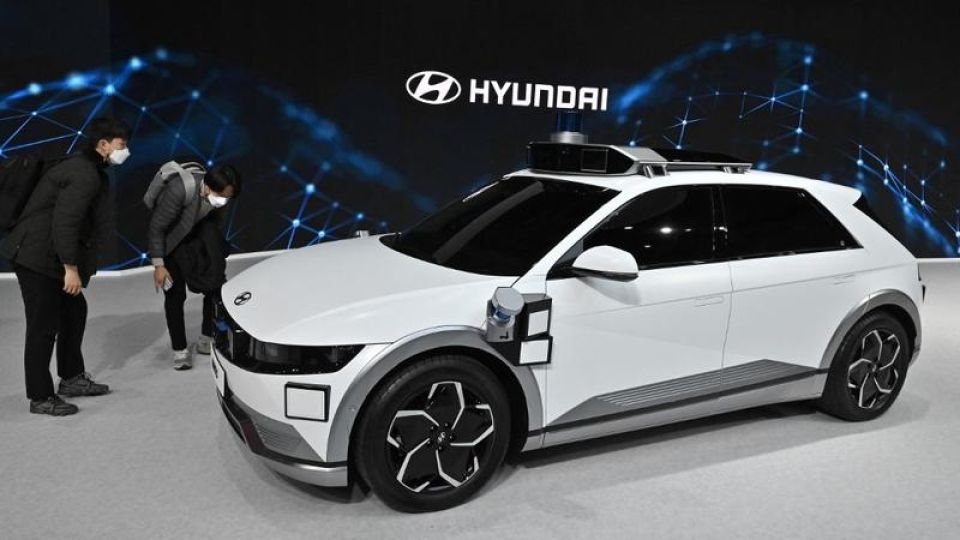November 7, 2022
HONG KONG – The Inflation Reduction Act of the United States can deal a massive blow to automakers in the Republic of Korea, experts say, urging the government to step up efforts to negotiate with Washington.
“The IRA will affect seriously the competitiveness of South Korean-made electric vehicles,” said Moon Jong-chol, a research fellow at the Korea Institute for Industrial Economics and Trade.
Since US President Joe Biden in August signed into law the IRA, people in the ROK have repeatedly expressed concerns that IRA seeks to exclude EVs assembled outside North America from receiving tax credits of up to $7,500
Since US President Joe Biden in August signed into law the IRA, people in the ROK have repeatedly expressed concerns that IRA seeks to exclude EVs assembled outside North America from receiving tax credits of up to $7,500. To receive the tax credits, the car’s battery must also meet a minimum threshold of parts sourced from the US or countries with which it has a free trade agreement.
Moon said the primary goal of the IRA is suspected to prevent the entry of China’s affordable finished EVs to the US market and promote domestic production and employment.
He said the Biden administration was trying to demonstrate to US voters that it was doing its best to protect US industries and workers before the country’s mid-term elections on Nov 8.
South Korean EVs use components and minerals from China and the cars are made outside the US without employing any US workers.
“I don’t think the US will make any meaningful changes by taking (South Korea’s) feedback seriously,” said Moon.
In a written opinion submitted to the US on Nov 4, the Seoul government said the IRA will hurt foreign EV companies and may violate international trade regimes such as the World Trade Organization and the two countries’ bilateral free trade agreement, according to a statement by the South Korean Ministry of Trade, Industry, and Energy.
South Korea is asking the US for a three-year grace period for its carmakers to keep receiving the tax credits in the US.
Hyundai, a leading South Korean automaker, has joined other non-US companies to propose a similar request and urge the US to ease the EV rules as it will hurt foreign investors.
In October, Jose Munoz, global president and chief operating officer of Hyundai Motor, told Reuters that the IRA is unfair and none of the South Korean automakers’ EVs will qualify for the credit.
The implementation of the IRA will likely reduce the price competitiveness of South Korea automakers, including Hyundai which, together with its affiliate Kia, had become the biggest EV seller in the US, said Lee Hang-koo, a senior analyst at Korea Automotive Technology Institute.
“Since South Korea relies heavily on China for core minerals for EVs, it is difficult for automakers to find suppliers to replace China in a short time,” said Lee, adding that changing the source of supply to other countries such as Canada, Australia and Chile may increase the cost.
He urged the government to offer more support for the South Korean carmakers in their aggressive lobbying efforts.
Eighty-four percent of lithium hydroxide, a critical mineral for batteries, imported to South Korea came from China in the first seven months of this year, the Korea JoongAng Daily reported, citing data from the Korea International Trade Association.
Moon said bringing the case to the WTO will “have almost no impact” as it will take too much time and it is highly likely that the WTO’s decision will be ignored by the US government.
“The only and immediate measure is to have a direct and constant negotiation with the US government to make the effect of the act more acceptable than the initial conditions,” said Moon, adding South Korean automakers cannot avoid making the difficult decision to build new EV production facilities or add production lines in the US.
But for the materials, Moon said the US cannot help but approve partly using Chinese materials because the production of the minerals in other countries is not sufficient to meet the demand.
With South Korean battery companies doubling their investment in the US to meet the requirement of the IRA, Lee from the Korea Automotive Technology Institute said this may also result in a decrease in investment in the sector in South Korea and thus means fewer job opportunities in the country.
In the short-term, Lee said it would be difficult to set up refining facilities for core minerals related to EVs in South Korea due to environmental issues.
“South Korean battery companies and EV makers like Hyundai and Kia are watching closely the US midterm elections because the result will affect how the IRA will be like,” said Lee, adding that he expects to see more lobbying activities related to the IRA and more government negotiations between the two countries after the elections.
Besides South Korea, the Japanese government also warned on Nov 5 that the new electric vehicle tax credits could ultimately deter further investment by the Japanese there and hit employment in the US, according to Reuters.


